Trust & Board of Directors
(Abirami Charitable Trust)
Dr.P.Periyaswamy MS.,Mch (Urology)
Dr Periyaswamy serves as an eminent Urologist, Endo-Urologist in the city of Coimbatore. He has done his MBBS in from Thanjavur Medical college , MS General surgery in 1981 from Stanley Medical college, Chennai and MCh Urology from Madras Medical college. He has more than twenty-five years of experience in Urology and his special interests is in Endourology
Dr.M.Kunthavi Devi MBBS., DGO.,
She is one of the founder of Sree Abirami Hospitals , trained in the institute of Obstetrics and Gynecology, Egmore, Chennai. She has more than 20 years of experience in the field of Obstetrics and Gynecology and is the key person responsible for the phenomenal development of the department in Sree Abirami Hospitals .
Dr.Senthil kumar MS, DNB
(GEN SURG), DNB (SURG GASTRO)
The department is ably managed by Dr. R Senthilkumar, the fully qualified, highly efficient and energetic surgical gastroenterologist from coimbatore. He has acquired his MBBS degree from coimbatore medical college and ms (general surgery) from the prestigious jawaharlal institute of postgraduate education (JIPMER), pondicherry. He has been awarded the DNB (surgical gastroenterology) super specialty degree by the National Board of Examinations.
Dr.P Balamurugan M.B.B.S.,MS (ortho)
Dr.P Balamurugan he is one among the Renowned orthopedic surgeon in Coimbatore. He is a graduate from Madras Medical College with good academic Interested. Trained in General Surgery at Postgraduate Institute of Medical Education and Research Chandigarh. Qualified in orthopedic surgery from the Historical Madurai Medical College.Managing the department efficiently competent in Join replacement, Arthroscopy,Spine and Complex Trauma Surgeries.
Sree Abirami Institutions
(a unit of Abirami Charitable Trust)

Sree Abirami college of Occupational Therapy was established in the year 2021 by the two eminent doctors Dr. P. Periyaswamy,MS.,Mch (urology)., Dr. M. Kunthavidevi,DGO., with the aim to provide quality learning in all spheres of higher education and develop skilled professionals for various sectors of health care in particular to the rural, semi urban and urban areas of the nation in the view to stretch our curable hands to restore the lives of dependent ones and fulfill the societal needs in the global context.
The college is attached to 350 bed multi disciplinary speciality hospital with advanced clinical set- up. The department of physical medicine & rehabilitation is equipped with modern facilities for providing training to our students.
Approvals & Recognitions
The college has been approved by the Government of Tamil Nadu and affiliated to the Tamil Nadu Dr. M.G.R Medical University - Chennai, WFOT & AIOTA.
Philosophy of Occupational Therapy
Occupational therapy relies on a philosophy and vision to guide the profession. Core Philosophical Assumptions
Humans are occupational beings: Humans need occupations in order to survive, develop, and be healthy and well.
Humans are interconnected with environments: Humans can be understood in the context of their environments, and therefore environments must be taken into consideration.
Human transformation comes from actions and environments: Humans continuously change over time based on their actions and the changes within their environments. Health is seen as a changing state of meaning, satisfaction, well-being, and quality of life.
Vision of Occupational Therapy
The vision of occupational therapy is based on the belief that therapeutic occupations can improve illness and restore or preserve health. This vision includes a practice that is:
Occupation-based: Occupational therapists focus on what an individual wants, needs, or is expected to do, and uses activities as interventions. The focus is on occupational performance issues and experiences, which incorporates the idea that humans are dynamic occupational beings who are interconnected with their environments.
Client-centered: Occupational therapists collaborate with individuals to understand their development over time, and to explore occupations and environments that have been meaningful and engaging. These occupations may serve as therapeutic experiences. This is often referred to as client-centered, or person-centered, practice because it focuses on the relationship and individual needs, rather than solely on the expertise of the professional.
Contextual: Occupational therapists see individuals as linked with their environments through occupation, meanings, roles, and routines. This can impact the transfer of skills to different environments. All environments must be considered, including where services are received and where the individual lives.
Evidence-based: While occupational therapists learn a variety of content in their education, the focus is on the understanding of occupations. The use of this knowledge is dependent on the individual and situation; thus occupational therapists must have the ability to integrate knowledge and evidence needed for each setting. This includes the integration of new research as it develops and evolves in practice
Principal’s Message
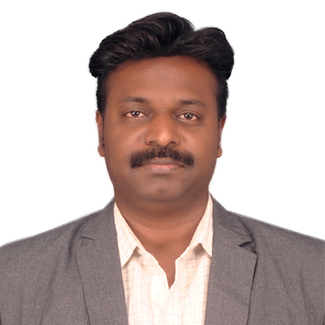 Prof. (Dr) Naresh Babu Karunakaran,
Prof. (Dr) Naresh Babu Karunakaran,
M.O.T (Neuro)., M. Sc (Psy), F.A.O.T (Neuro Rehab)., PhD (O.T)
Dean cum Principal
Welcome to Sree Abirami College of Occupational Therapy, where we are dedicated to shaping the next generation of healthcare professionals.
At SACOOT, we believe in fostering a culture of compassion, innovation, and excellence. Our mission is to provide quality education and training in occupational therapy, enabling our students to become skilled professionals who can make a meaningful difference in people's lives.
We envision a center of excellence in occupational therapy, where our students can grow, learn, and thrive. We strive to provide a supportive and inclusive environment that encourages creativity, critical thinking, and collaboration.
We are committed to nurturing talented individuals who will become leaders in the field of occupational therapy. Our faculty members are experienced professionals who are passionate about teaching and mentoring. We offer a comprehensive curriculum that combines theoretical knowledge with practical skills, ensuring that our students are well-equipped to meet the demands of the healthcare industry.
We are proud to announce that our institution is accredited by the World Federation of Occupational Therapists (WFOT) and our curriculum is aligned with the National Council for Allied and Healthcare Professions (NCAHP) standards.
As a student at Sree Abirami College of Occupational Therapy, you will be part of a vibrant community that values diversity, inclusivity, and social responsibility. We invite you to join us on this journey of discovery and growth, as we work together to shape the future of occupational therapy.
I look forward to welcoming you to our college community and supporting you on your journey to becoming an exceptional occupational therapist.

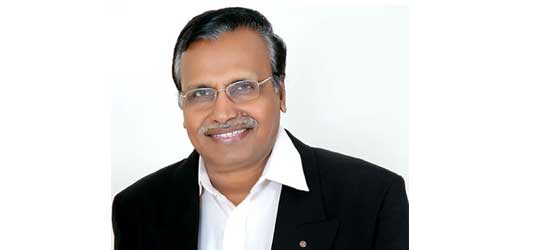
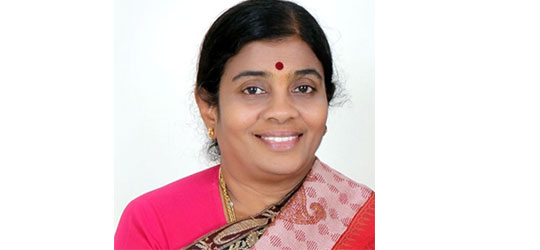
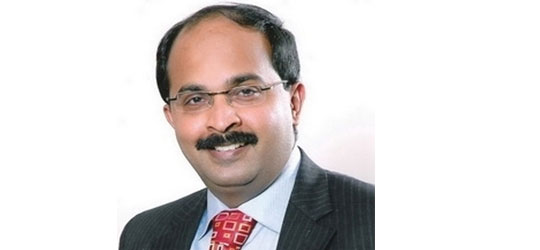
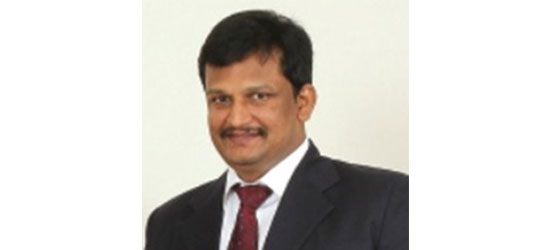

 Prof. (Dr) Naresh Babu Karunakaran,
Prof. (Dr) Naresh Babu Karunakaran,